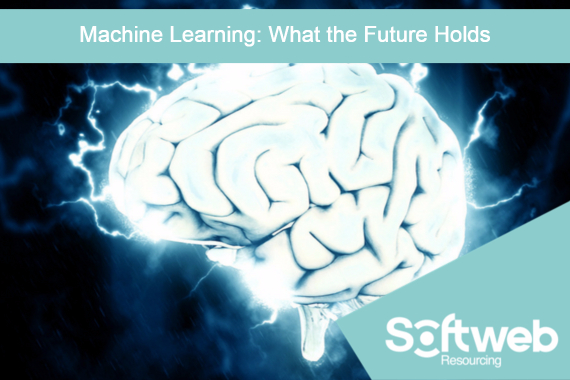
The terms artificial intelligence and machine learning are often used interchangeably, and whilst they are inherently connected, they are not one and the same. In essence, artificial intelligence is the overarching concept of machines being able to ‘think’ independently and carry out tasks in a way that would be deemed ‘smart’.
Machine learning on the other hand is the practical application that makes artificial intelligence possible. Stanford University defines machine learning as “the science of getting computers to act without being explicitly programmed”. Rather than teaching computers everything they need to know about the world, machine learning works on the premise that computers should be able to learn about the world as humans do, through observation and analysis.
Intel’s Nidhi Chappell, offers a good explanation of the subtle differences between the two interconnected concepts: “AI is basically the intelligence – how we make machines intelligent, while machine learning is the implementation of the compute methods that support it. The way I think of it is: AI is the science and machine learning is the algorithms that make the machines smarter … so the enabler for AI is machine learning”.
Machine learning is an ‘on the cusp’ technology poised to revolutionise a wide array of verticals. The pace of development in machine learning has been rapid of late. A perfect storm of inexpensive data storage, a surge in sources of consumer data, and a boom in processing power has opened the flood gates. Slowly but surely its application is becoming widespread; from cancer research to autonomous vehicles, machine learning is quietly changing the way we use and interpret data. Machine learning is one of those technologies that will change the world.
According to Intel’s Nidhi Chappell, “machine learning is the fastest growing part of AI. Even though it’s a small percentage of the workloads in computing today, it’s the fastest growing area, so that’s why everyone is honing in on that.” Machine learning has given birth to countless new companies and technologies. Whilst most of what we see and hear about machine learning revolves around sexy products like driverless cars and AI personal assistants, in fact, pretty much every website you interact with is using machine learning in the background without you even knowing it. The future for machine learning is bright. With the growth of data sources growing on an exponential basis, the need from businesses to leverage that data is huge. Over the coming years we will see businesses across all verticals investing in machine learning and reaping the benefits of its application.
At Softweb we’ve witnessed firsthand the growth in demand for programmers with machine learning skills. It’s a brave new world with a wealth of opportunities. With that in mind we thought it’d be useful to quickly run through the range of skills that employers are looking for when it comes to programmers. Firstly, employers are looking for candidates with a range of programming languages. Python, C++, Java, and the R programming language will all stand you in good stead. You’ll also need a good understanding of algorithm theory, and be able to apply machine learning algorithms and libraries. You’ll also need a good understanding of the theories pertaining to statistics and probability. Useful examples to read up on are: Naive Bayes, Gaussian Mixture Models, Hidden Markov Models, and measure theory.
If you’d like some help either starting or continuing your career as a programmer in the field of machine learning, get in touch with our team of recruiters. We’re working with a wide range of employers that are looking for programming skills and we would love to help.


